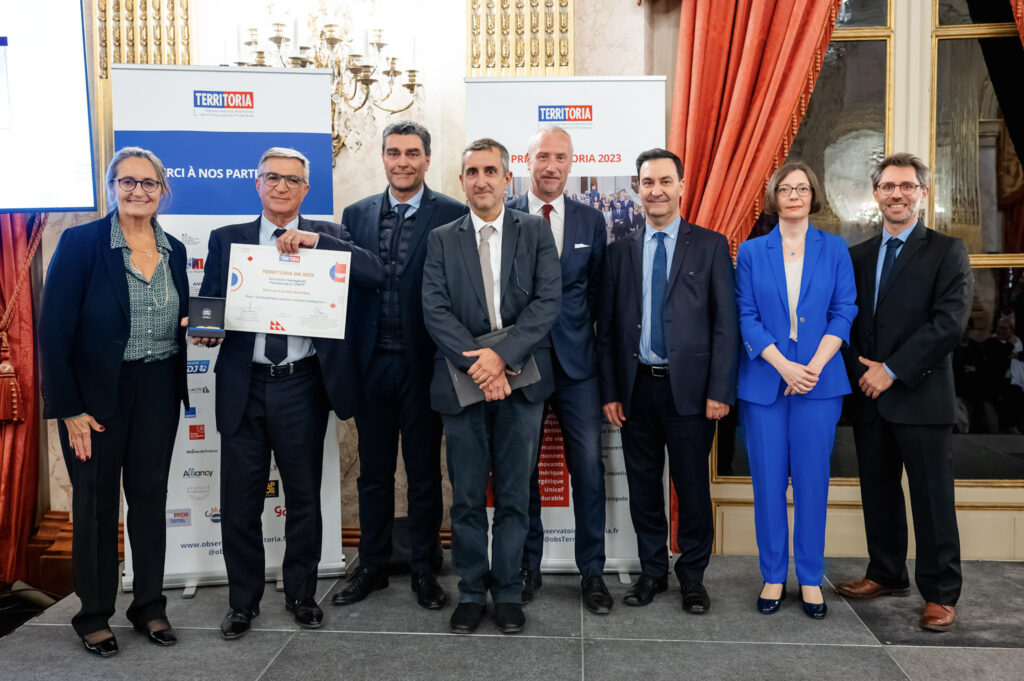In the era of digital transformation, multi-company processes governed by legal contracts are becoming increasingly common. With the untapped potential of decentralized processes, there is a growing prospect for digitizing and automating collaborative contract management, streamlining operations, and reducing risks and costs.
Recognizing this potential, the City of Antibes and SAP Innovation Center Network have joined forces to redefine digital contract management with a focus on public procurement processes. Patrick Duverger, chief technology officer of the City of Antibes, describes its previous procurement operations as follows: “Although we achieved a high level of operational proficiency, our business processes lacked full traceability. This resulted in process opacity when it comes to recurring delays, delivery errors, or administrative sanctions. By gaining a deeper understanding of our processes, we can optimize them, reduce costs, and minimize business risks.”
Transparent and Traceable Collaboration
The lack of visibility and traceability in these processes hindered automation, cross-organizational data and process mining, and intelligence. This directly affected how disputes were resolved and impacted organizational budgets.
To address this challenge, SAP Innovation Center Network developed a prototype based on the SAP Cross-Company Workflow Collaboration service, combined with a blockchain-based shared ledger on SAP HANA Cloud. “This prototype aims to replace manual practices with automated, cross-company orchestrations. By using an SAP HANA Cloud shared ledger, organizations like the City of Antibes can benefit from a permissioned, publicly verifiable, and immutable audit trail of cross-organizational interactions,” says Benjamin Stoeckhert, innovation product manager at SAP Innovation Center Network, illustrating the potential of this innovation.
“Leveraging the full potential of an SAP HANA Cloud shared ledger allows us to connect digital platforms that unite businesses and government to track the compliance of services and product deliveries according to contractual terms and conditions,” explains Duverger. “We can leverage data from different parties, such as logistics companies and quality certification bodies, and move beyond the era of cumbersome paperwork and manual processes. For example, this pattern is applicable to procurement processes where multiple parties verify the compliance of suppliers and their deliveries.”
Complete Control of Unencrypted Data
However, opening up collaborative processes directly conflicts with customer privacy concerns. This dilemma poses a significant challenge for next-generation contract management. How can businesses ensure transparency without compromising the privacy of private business information and processes? Duverger emphasizes the importance of protecting sensitive public procurement secrets: “Confidentiality, including negotiated prices and deal sizes, is paramount for us and our suppliers.”
In response to this pressing need, the SAP Security Research team, in collaboration with the SAP Innovation Center Network blockchain team, has extended SAP Cross-Company Workflow Collaboration with a hardware-based privacy-enhancing technology (PET) innovation. Dr. Laurent Gomez, who led this innovation with Antibes, explains: “Before committing a transaction to the shared ledger, organizations encrypt it along with its associated sensitive information, using their own managed cryptographic material. Encrypted data and processes are only processed within secure and trusted hardware modules, with the explicit consent of each stakeholder.”
This innovation can unlock significant business value by helping to automate cross-company operations and protect the privacy of customer data while still allowing for analysis. The key contribution of this approach is that it gives customers complete control and ownership of their encrypted material. “SAP can never access unencrypted data; the only data that leaves our information system is encrypted by us,” says Duverger. “SAP Business Technology Platform (SAP BTP) allows us to hold our own encryption keys, which is different from competing solutions.”
5% Less Late Payment Penalty Costs
The co-innovation has revealed the bottlenecks that slow down the procurement process at the City of Antibes and lead to late payment penalties for suppliers and delivery delays. “By adopting this secure distributed ledger approach, we have improved these key performance indicators without changing the process itself. We can now reliably manage all our procurement transactions,” says Duverger. “A key achievement was that we reduced our delinquency rate by 5%, which significantly minimized the impact of late payment penalty costs on our global spend budget.”
The project was recently recognized at the highest national level with the Territoria Gold Award by the French Ministries of the Interior, Ecological Transition, and Territorial Cohesion.

To find out more about SAP Cross-Company Workflow, get in touch with us at icn@sap.com.
Corinna Schmidt is part of NVT Communication at SAP.



